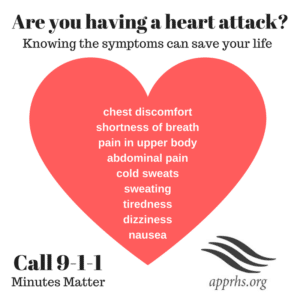From chocolates to festive decor, you can’t go anywhere during the month of February without seeing hearts. But just because you can’t see your heart as easily as the Hallmark cards lining the stores right now, that doesn’t mean it doesn’t deserve some much-needed attention. It’s the only one you have, and we at UNC Health Appalachian want yours ticking for a very long time.
In celebration of Heart Health Awareness month, here are three easy ways to make sure your heart is getting the love it deserves:
Eat a Healthy Diet
To have a heart healthy diet consider making your plate more colorful. Try incorporating more whole wheat, vegetables, fruits, and leaner meats into your diet; and reduce sodium intake, alcohol, saturated or trans-fat and sugars. To find heart healthy recipes check out the American Heart Association recipe collection.
Individual nutrition counseling, with a qualified registered dietitian / nutritionist (RDN), is available for patients with a variety of conditions including heart disease.
Engage in Regular Physical Activity
We all know we need to exercise to maintain a healthy weight and functioning body, but how much actually makes a difference? The Surgeon General recommends that adults engage in moderate-intensity exercise for at least 2 hours and 30 minutes a week. This could be as simple as a brisk walk or bike ride on the Greenway once the weather finally thaws or signing up for a group class or personal training.
Listen to Your Heart
While living a healthy lifestyle is integral in maintaining a functional and thriving heart, it’s also important to be active about what your body is telling you. Know the signs of a heart attack and be proactive about seeking help when you know you feel “off.” According to The American Heart Association, signs to look for include discomfort in the center of your chest that lasts more than a few minutes or goes away and comes back. The sensation can feel like uncomfortable pressure, squeezing, fullness, or pain.
Appalachian Regional Healthcare System is here to ensure you have the best resources available for your heart-health needs. From prevention to intervention, our state-of-the-art facilities and services are available, and The Heart & Vascular Center now offers same-day appointments for those experiencing sudden onset symptoms.
If you have questions or concerns about your heart health or if you are experiencing non-life-threatening cardiac symptoms, call (828) 264-9664 to schedule an appointment. If you are experiencing chest pain, shortness of breath, or other life-threatening symptoms, call 911.
Share this page



